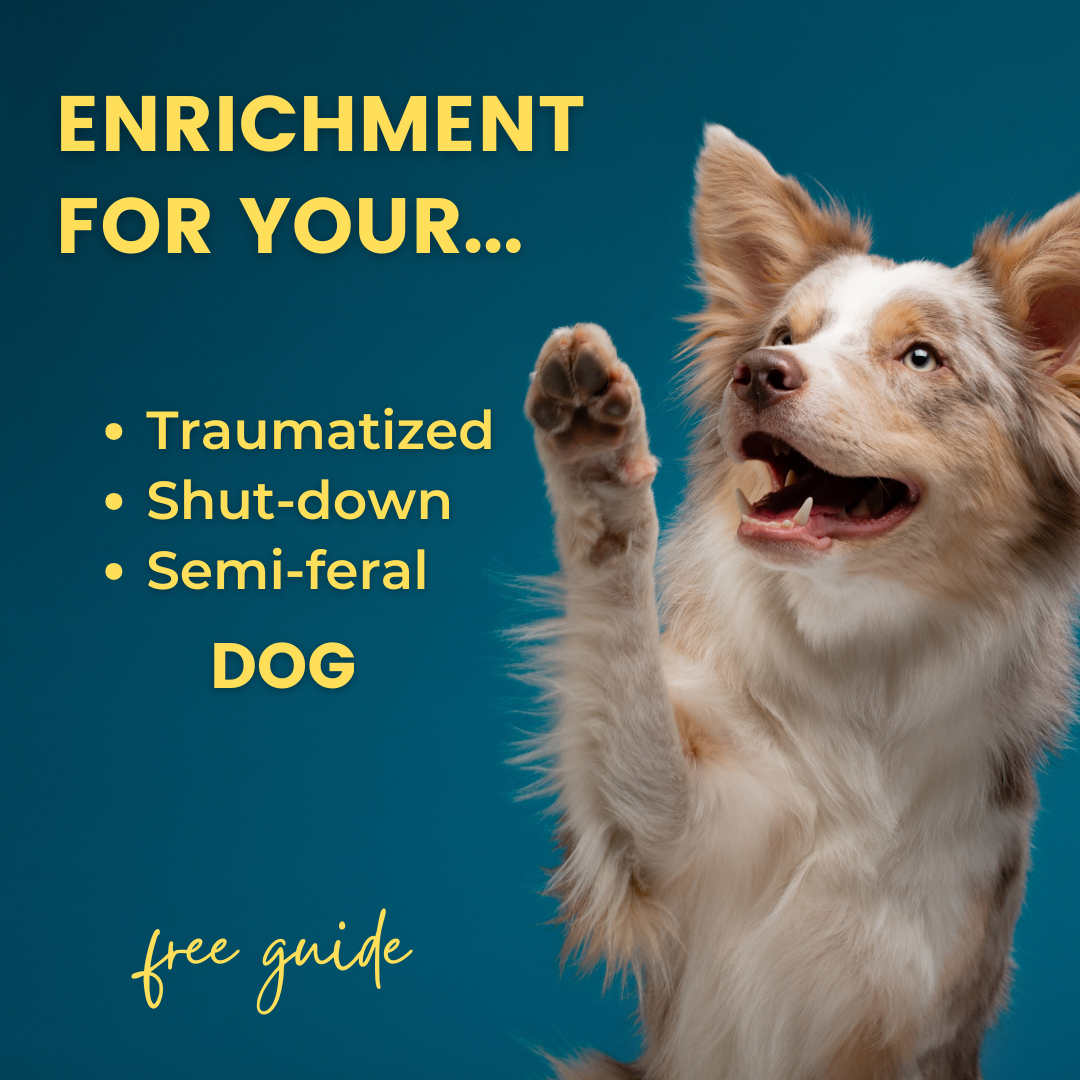Getting to the Vet with your Fearful Dog
Jan 18, 2022
Are you worried about your fearful dog's next vet appointment? If you have a dog who is fearful of strangers, or of being touched, veterinary care can be especially stressful. In this video I share helpful resources you can look to when preparing for your next vet visit. Here are some things to think about to get you started:
Choosing a Vet
Your choice of veterinarian, and veterinary clinic, will influence the type of support you and your fearful dog receive. When choosing a vet, here are some things to think about:
- Consider a Fear Free® vet: Fear Free® certified veterinary staff have completed continuing education in behavior and how to reduce the stress of vet visits.
- Location: All things equal, a veterinary clinic located close to your home is usually a bonus, especially if you have a dog who isn't comfortable in the car.
- Layout: Can you bring your fearful dog in through a side or back entrance, and skip the busy lobby? This can really cut down on vet visit drama.
- Flexibility of care: Clinics vary in their ability and willingness to accommodate special requests. For example, my veterinarian examines one of my dogs out on the lawn in front of the clinic where she's more comfortable. And I've stayed with my dogs either in my car or an exam room while pre-anesthetic drugs kick in, so I'm with them until they're ready to with the vet. Work with your trainer to develop a list of questions to ask potential veterinarians, to determine whether they'll be able to meet your dog's needs.
How to Develop a Vet Visit Plan
Planning your vet visits ahead of time can make the process go more smoothly for you and your dog. You don't need to do this alone! Take advantage of resources available to you:
- Talk to your vet: Let your vet know ahead of time about your dog's fears and potential problem behaviors. They can advise on whether pre-visit medications might be appropriate. They'll also know when the best times are to schedule procedures for fearful dogs- maybe during quieter times at the clinic, and/or when certain staff are available.
- Talk with your trainer: Work with a trainer to develop plans for transport to the clinic, handling, and muzzle training if appropriate. (If you need help finding a trainer or would like to work with us, email us at admin@dogkindtraining.com.)
Helpful Gear
Bringing the right items with you can help make transport and vet visits less stressful for your dog.
- Transport crate or carrier: A secure crate or carrier keeps dogs from moving around too much in the car. If your dog is small enough, carrying them into the clinic in a carrier can be a good option.
- A large towel or blanket cover for the crate/carrier: Some dogs vocalize less and display fewer signs of stress when the view from inside the crate is covered.
- Secure harness or martingale collar: Especially if your dog will be walking into the clinic on a leash, a well-fitted harness or martingale collar decreases the risk that your fearful dog will get loose.
- Favorite blanket or dog bed: Having a comfortable bed or blanket can be a good idea if your dog is staying any length of time, especially for a procedure that will keep them overnight.
- At-home scale: If you can weigh your dog at home, that will be one less thing the veterinary staff have to do with your dog during the visit.
- High-value treats (in a tube): If your dog will eat treats at the clinic, providing favorite treats can make the veterinary staff's jobs a little easier. Using a treat tube has the added bonus of keeping their fingers farther from your dog's mouth, and is an easier way to deliver treats through a basket muzzle.
- Basket Muzzle: If your dog has bitten or might bite the veterinary staff, a muzzle can help keep everyone safe. A basket muzzle that is properly fitted to your dog is preferable to the grooming muzzles used at many vet clinics. Your dog should be trained to wear one ahead of time if you are planning on using a muzzle.
I hope you enjoy this week's video and find it helpful in your fearful dog's vet care.
If you're looking for more one-on-one guidance with your fearful dog, check out our online training membership, the Reactive Dog Academy. For a more personalized plan, sign up for private training.
If you are working on handling and care of your fearful dog, we want to hear about your successes or struggles. Join our Facebook group and post your questions or comments there, or email us at admin@dogkindtraining.com.



